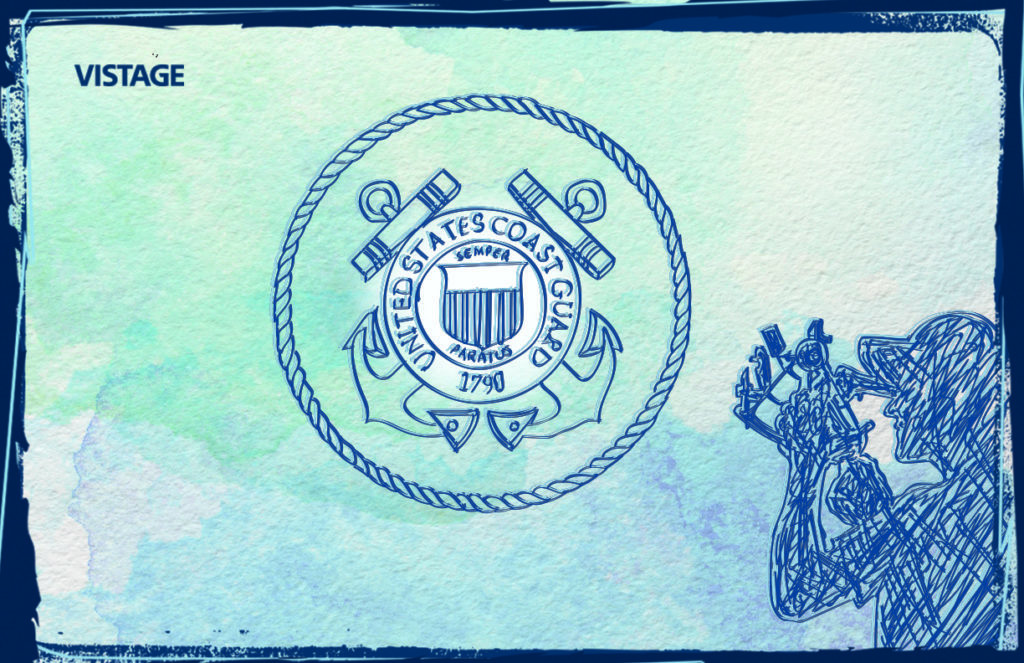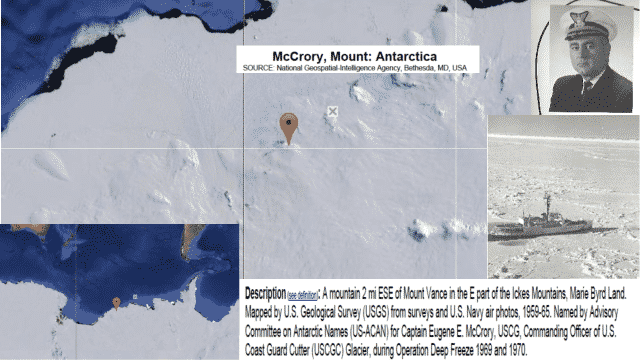Lessons in leadership from the U.S. Coast Guard

Robert Slate graduated from the US Coast Guard Academy in 1967. He reported to the CG Icebreaker ‘Glacier.’ Captain Eugene McCrory provided Slate with a template for leadership that he has carried with him for nearly 50 years.
I had been a Coast Guard (CG) officer with only one 6-month deployment to Antarctica on my resume when Capt. Eugene McCrory reported aboard the CG Icebreaker Glacier in 1968. He said, “Mr. Slate, I want you to be my navigator on the next deployment to Antarctica.”
To put this in context, in 1968, there was no technology in navigation; we used the stars for celestial navigation just as Magellan did. Also in 1968, Icebreakers were going into dangerous conditions, supporting Operation Deepfreeze, where man had never traveled (and lived to tell about it).
The Captain knew that we were going to encounter big obstacles and dangerous conditions, but assured me that as the Captain, he would make the decisions.
But the Captain was very clear to me that one of those obstacles we would encounter must never be the location of the vessel; I was expected to always know exactly where we were. His requirement was that I chart and (most importantly) envision the entire 25,000-mile journey involving three continents and three oceans before we ever left the dock in Long Beach, CA. And so it was that I came to admire my Captain and leader. We successfully logged 25,000 miles together in Operation Deepfreeze to Antarctica and back in 1968–1969.
It takes a leader to chart a course
Thirty years later, renowned leadership guru John Maxwell wrote “The 21 Irrefutable Laws of Leadership.” Law #4 is The Law of Navigation. The author uses the example of Antarctic explorer Robert Falcon Scott in 1911 to explain his case for the Law of Navigation. Maxwell posits that anyone can steer a ship, but it takes a leader to chart a course. He goes on to say that leaders see the whole trip in their minds before they leave the dock. Wow! Exactly as Capt. McCrory taught me.
The Scott Expedition failed in the Law of Navigation and the crew all died seeking the South Pole. I have visited his grave at McMurdo Station.
Maxwell says that the secret to the Law of Navigation is preparation. I have been a Vistage Chair for 10 years. Each year, every member presents a comprehensive strategic plan that envisions his company’s journey, the course they are charting, and the obstacles and conditions. It receives immediate critique from the Vistage group. I produce a formal feedback report and the member does another critique with the group the following month, and revisits the process again six months later. I have been involved in this process about 400 times over the last ten years. Maxwell and McCrory would approve.

Captain Eugene McCrory USCG was a leader among a long list of Antarctic explorers and sea captains. In 1974, the Antarctic International Advisory Committee recognized him by naming a prominent peak near the coast of western Antarctica Mount McCrory.
Rest in peace my Captain.
Bob Slate joined Vistage Worldwide in 2005 and has been active in helping develop leaders and healthy businesses along the Gulf Coast ever since. Thank you for your service, Bob.
More lessons in leadership from the United States Armed Forces:
Stephen Johnson of the U.S. Navy![]() talks about how a CEO commands the morale of his team.
talks about how a CEO commands the morale of his team.
Mike Malone of the U.S. Marine Corps ![]() recalls how watching a ship get underway informed his idea of teamwork.
recalls how watching a ship get underway informed his idea of teamwork.
Randy Miller’s experiences![]() with positive and negative leadership in the U.S. Air Force shaped his leadership mantra.
with positive and negative leadership in the U.S. Air Force shaped his leadership mantra.
Richard Carr recalls![]() a three-star general whose example he has followed through his own career.
a three-star general whose example he has followed through his own career.
Category : Leadership

